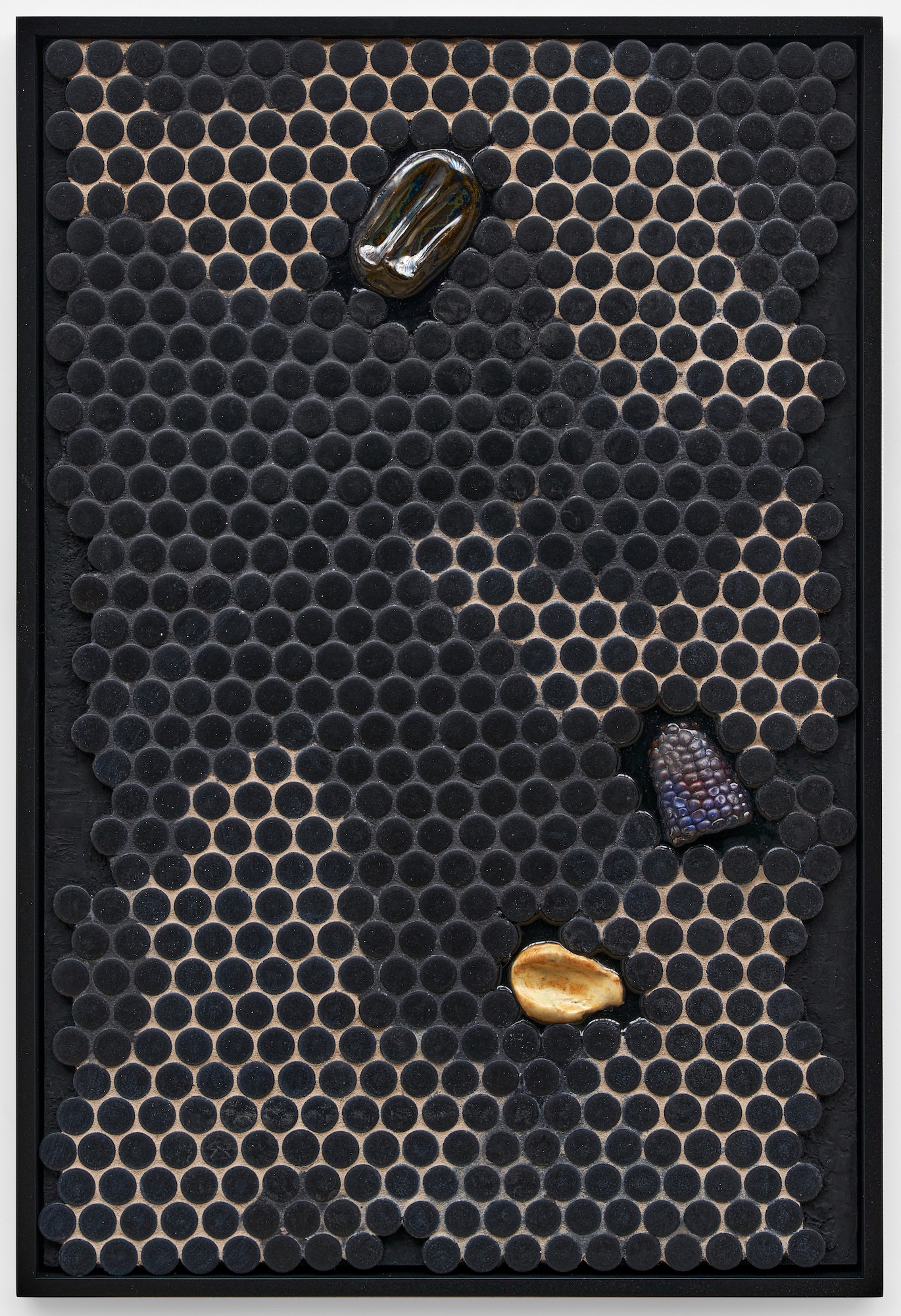The Detritus of Betterment: Ilana Harris-Babou’s Needy Machines
For the final feature of my editorial residency at Topical Cream, I invited writer Dessane Lopez Cassell to review Ilana Harris-Babou’s Needy Machines, her debut solo show at Candace Madey. Harris-Babou’s practice focuses on examining the gap between health and consumer-focused “wellness culture.” While much of Harris-Babou’s previous work has been satirical in bent, Needy Machines offers a more visceral, subtle critique. Smart mirrors that display text cutouts such as “Empathy is our best policy™” are installed alongside tile-based wall works that gather the detritus of betterment. The resulting installation feels almost like a hall of (small) mirrors, as it asks us to linger in our own reflections and ponder our consumerist culpability in driving Silicon Valley’s attempts to optimize every aspect of life.
– Ruba Katrib, 2023 EIR
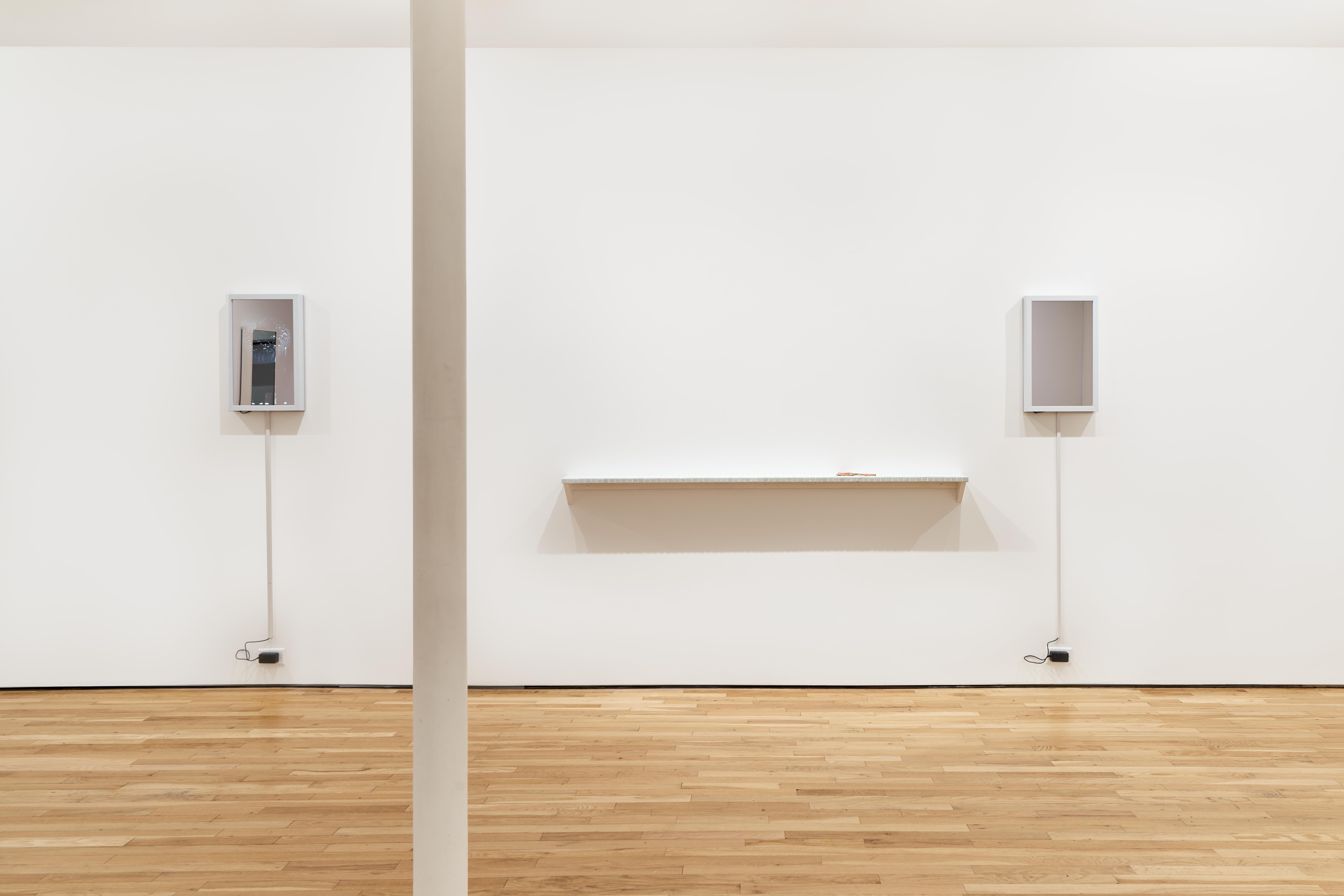
Colostrum powders; $18 smoothies; smart mirrors, and more—in this age of social media, the list of things we’re told we need to be “well” is endless. Being healthy, according to contemporary wellness culture, has become less about our immune systems and more about image. Ilana Harris-Babou, a sculptor and video artist, has made an art form out of examining the gap between health and wellness™.
In Needy Machines, Harris-Babou’s first solo show at Candice Madey, the artist converts the gallery’s domestic interior into a hall of (small) mirrors that reflects the weird vapidity of it all. Upon entering, I’m beckoned over to the show’s titular work (2023) in the front room, a custom smart mirror that recalls a closed medicine cabinet. Sounds of bathroom business—a steady stream, a forceful flush, and (a too brief) handwashing—give way to the eerily bland swell of meditation music. But there’s little time for calm here. Onscreen, forceful swoosh sounds usher in a quick succession of cryptic text cutouts: “Empathy is our best policy™” and “You’re one of a kind. Your healthcare should be too.” Found poetry from a fraught healthcare system. Isolated from their native pamphlets and mailers, each refrain hangs in the void of the black screen, seemingly modeling the distance between patient needs and insurance policies.
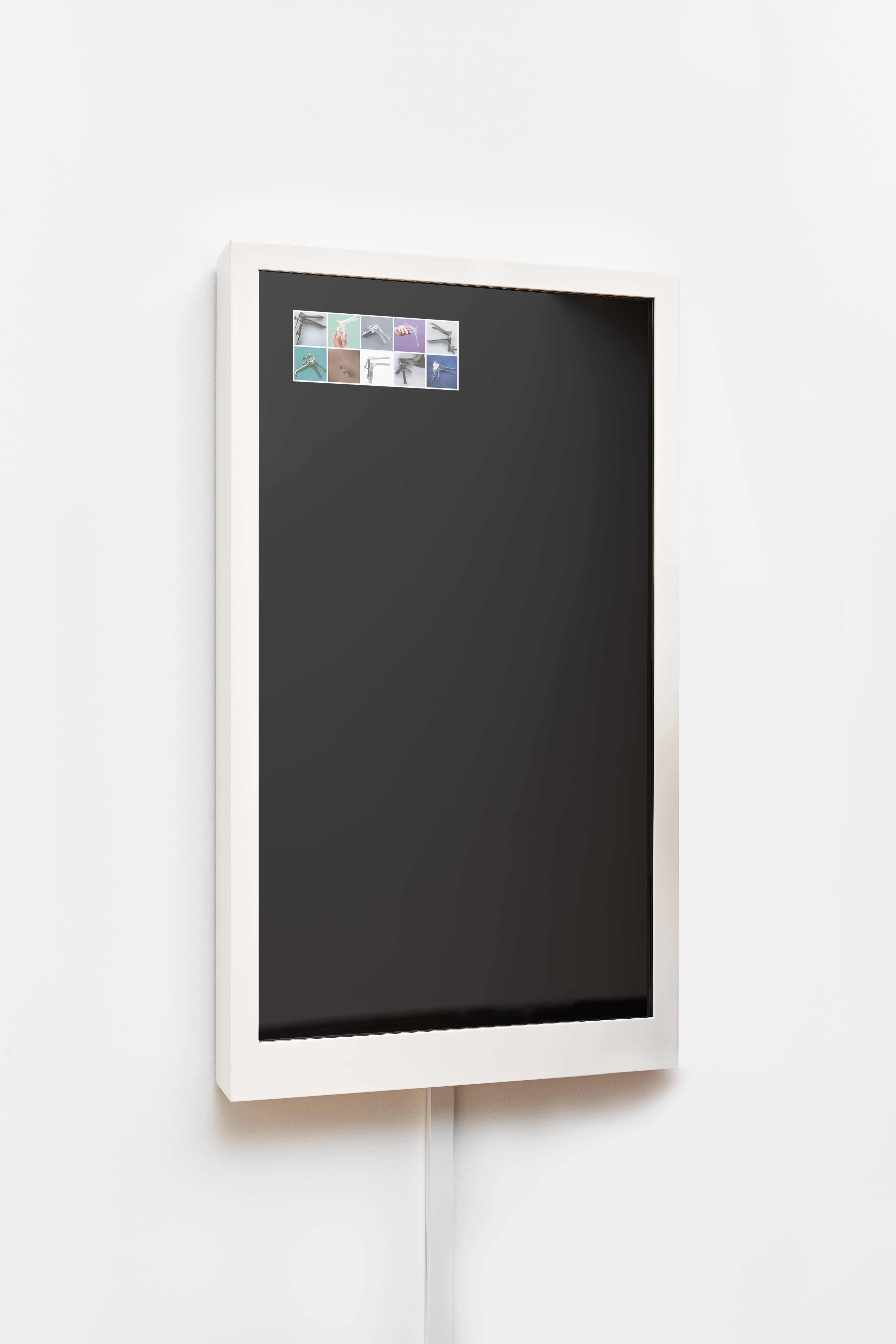
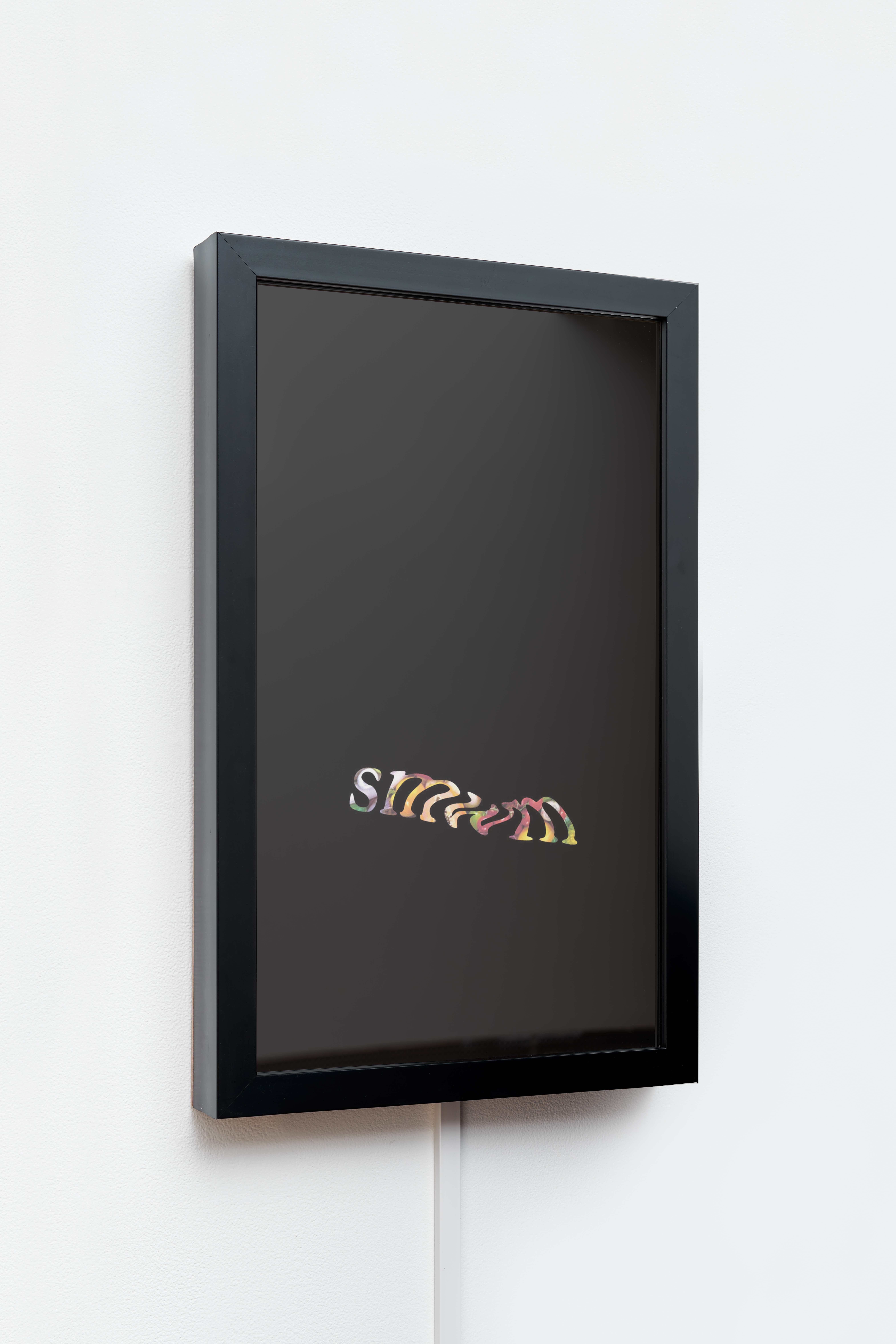
Harris-Babou usually makes a habit of employing satire in service of consumerist critique, sprinkling in cringe and dysfunction to highlight the persistence of systemic inequity, particularly for communities of color. But here she offers something both subtler and more visceral. In the gallery’s main space, she’s installed two other smart mirror works—Foaming Mouth 2 and Tender Turing 1 (sibling to the adjacent Tender Turing 2; all 2023)—each at eye level, as if inviting viewers to sit with the contrast between their own reflections and newfangled health tech that has become as omnipresent as it is inaccessible. (A low-end device runs close to $200, while deluxe [smarter?] models range over $1,000.) In Foaming Mouth 2, ghostly tendrils of spittle creep down the screen, forming a gross halo around the mirror’s beholder. Its slow fade back to a purely mirrored state forces a lingering in one’s own reflection, drawing out the vanity and aspiration that seems to guide Silicon Valley’s attempts to optimize every aspect of life. In stripping these “smart” devices of their functions, Harris-Babou seems to point toward the inanity of seeking vitality through accumulation, especially in a country where access to healthcare remains mostly shackled to being employed.
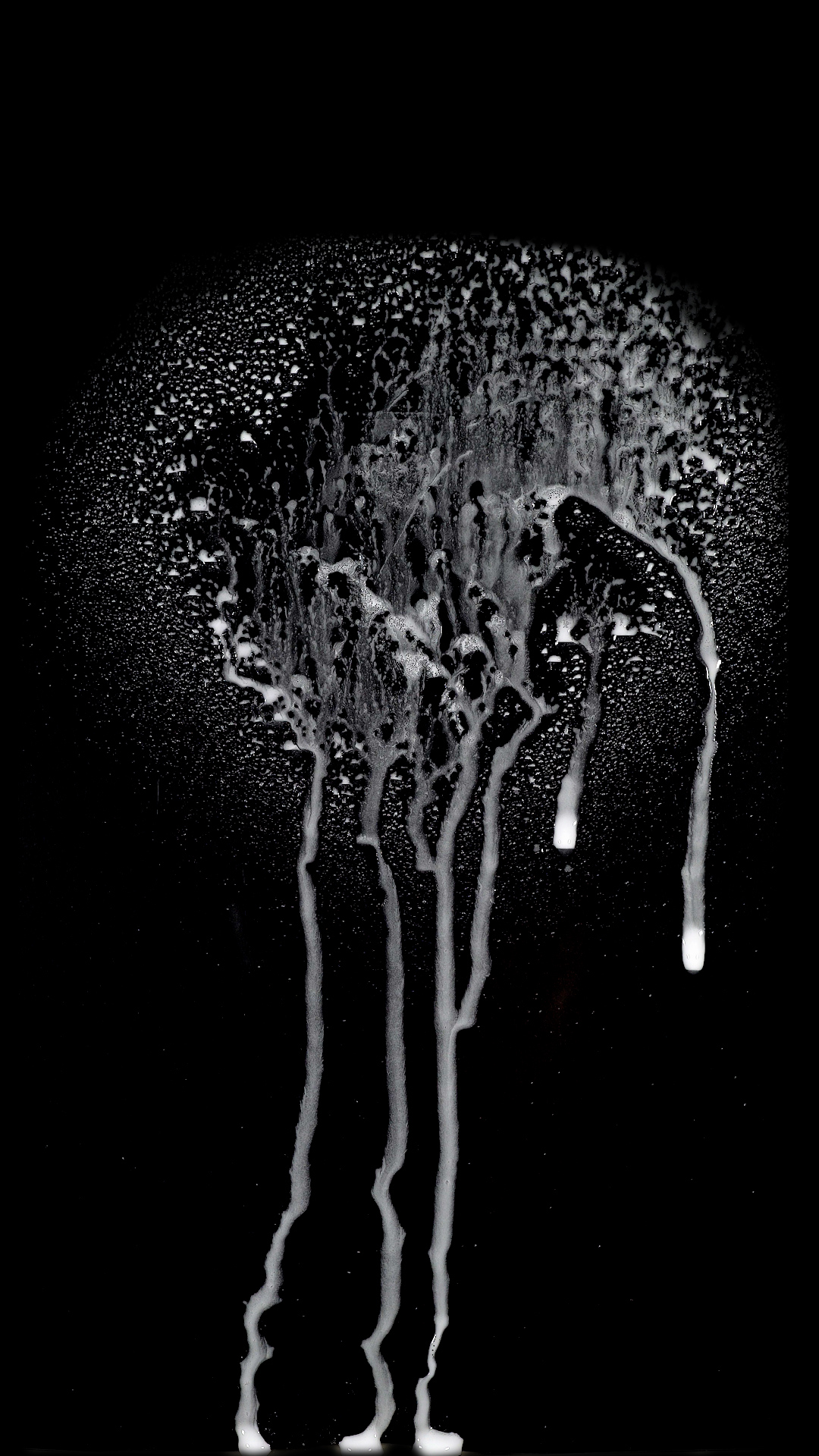
Nearby, a series of framed tile-based works gathers the detritus of betterment: a resin orange rind, a pill bottle, and brightly glazed ceramic cosmetic tubes nestle in the grout of various bathroom tiles. It’s a feast of texture, neatly packaged and rendered wholly unappetizing. Harris-Babou’s usual use of the grotesque toned down into something almost mournful. These works feel akin to fossils, the last remnants we’ll have after society runs itself into the ground through physical and environmental collapse. In each of these framed tableaux, from Confetti 2 to Green Swipe and Rind (all 2023), the artist has incorporated small, vibrantly hued divots, each ceramic indent meant to mimic the chronic swiping of devices that links the objects in the exhibition. Hands, a frequent motif in Harris-Babou’s video work, exist as phantom culprits here, leaving only disembodied traces of their mindless acts behind.
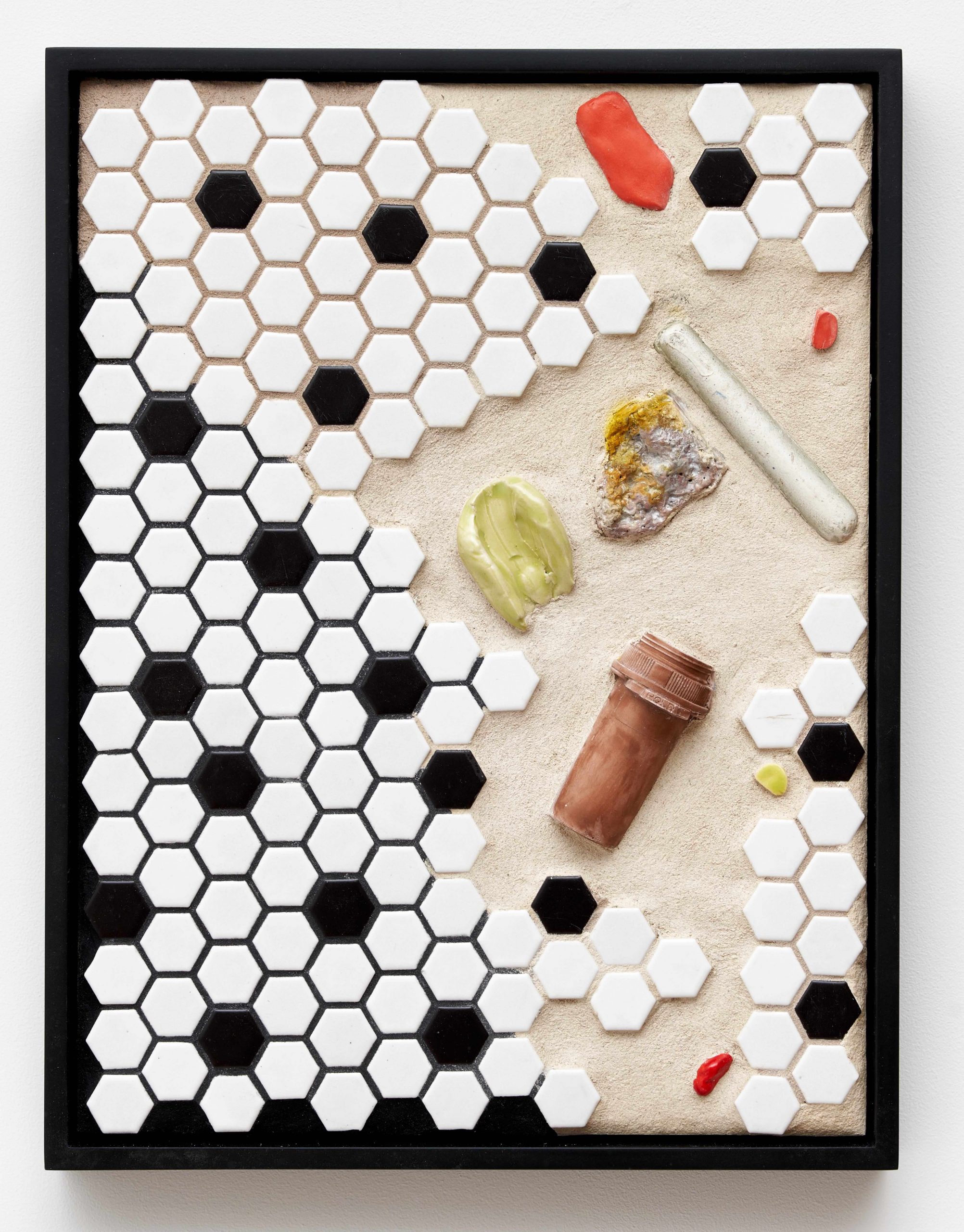
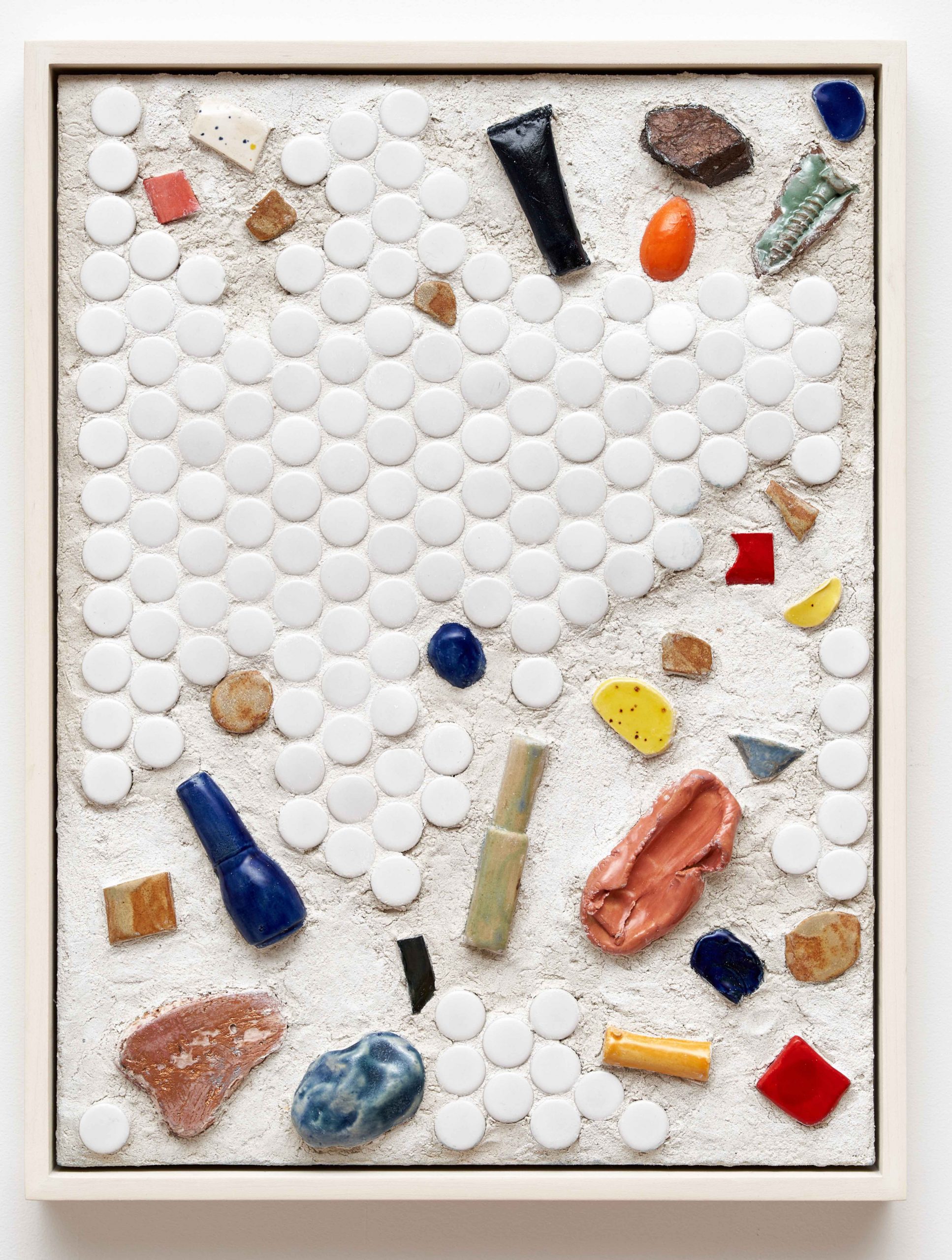
As if on cue, the steady stream and shuffling of Needy Machine starts back up as I exit the gallery, a reminder to return to my body. If health is rooted in flesh, veins, and genetics, “wellness” as Harris-Babou surmises, remains something more abstract—an elusive state connected to but not entirely of the body. It’s in this murky realm that technology and its algorithms do their most pernicious work, steering us toward an endless stream of shiny new placebos while distracting us from the root causes of our collective unwell. With this body of work begun during the pandemic, Harris-Babou seems to be looking back from the future being sold to us. It’s up to us whether we take the bait.
Dessane Lopez Cassell is a New York-based editor, writer, and curator. Her work focuses on film and visual art concerned with race, gender, labor, and decoloniality.
Banner image: Ilana Harris-Babou, Penny 1, 2023. Glazed ceramic, tile, grout, pigment, and resin on panel. 17 x 13 x 1 3/4 inches. Photograph by Kunning Huang.
